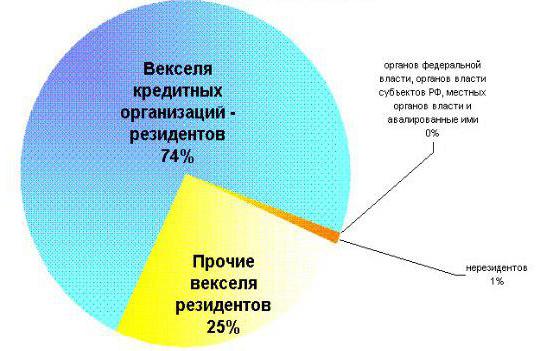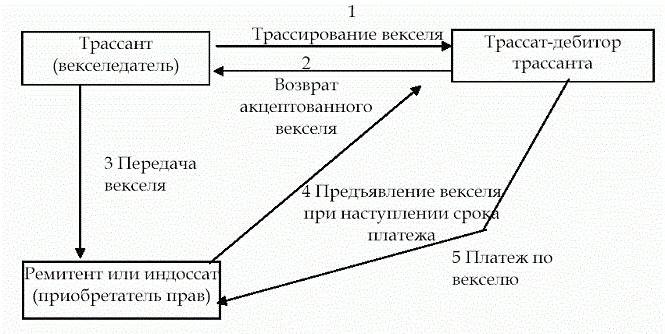An objective assessment of bills is a guarantee of the reliability of the disposal of funds, helps to reduce financial risks, accelerate business development processes.
What is a bill of exchange?
A bill of exchange is a type of security that is used to process debts, is a convenient form of payment in the absence of free cash, a method of settlement and attraction of investments. It guarantees that the bearer receives a certain amount within the specified period. 
When paying with these securities, the issuer can keep cash in circulation. In addition to the fact that the bill is obligatory for payment, it is abstract in nature, it does not indicate information about the basis for its issuance. It is convenient to use for calculations so as not to transport large amounts of money for security purposes.
Types of bills
The characteristics of bills and their assessment depend on the type of bills.
They have a strictly established form in accordance with No. 48-FZ of 11.3.1997 "On a bill of exchange and a promissory note", issued by both legal entities and individuals. 
The main types are simple and transferable:
- Promissory notes are similar to a cash receipt, they contain an obligation to return the money on a specific day. They are issued only in one copy, which is located at the seller.
- A bill of exchange, draft, obliges a third party, usually a bank, to pay the indicated amount to the bill holder. It contains the order of the creditor to the debtor to issue by the indicated date the amount for paying the debt to a third party. It is written out in duplicate. Persons are jointly and severally liable for its financial support. The transfer type gives the right to pay the debt by third parties.
A financial bill serves to carry out loan operations. It is paid to the bearer. As a rule, the loan term does not exceed 270 days. The interest accrued on it is paid off with the principal amount. 
A bank bill is a very convenient and popular type of transfer type. The drawer deposits money into a deposit account with a bank, which repays it upon presentation, with the accrual of interest income.
Profit from the purchase of bills appears when interest is received or if they are purchased below par, at a discount.
Requisites during registration must comply with the established form, not contain errors, otherwise the security may be invalid.
How much is a bill of exchange?
Assessing the market value of promissory notes of large issuers is simpler, since their subsequent payment is not in doubt. There is an established price on the market.
It is more difficult to guarantee timely payment of securities issued by unknown issuers. Valuation of bills of exchange includes determining the reliability of the drawer. The latter can sell them only at the market price, which is affected by its profitability.
Determining the sale value and discount rate are the main tasks in evaluating bills. It is carried out in all cases when you need to know the objective price in order to pay them in the following situations:
- When making them or withdrawing from the fixed assets of the enterprise.
- Upon receipt or transfer of inheritance.
- When lending.
- With insurance.
- When selecting branches or combining parts of an enterprise.
- For transactions of sale, inheritance, donation and other cases.
What affects the price of a bill?
In order to correctly assess the cost, factors that affect it are studied.
It takes into account the competitiveness of bills in the market, quotes for similar securities, liquidity, and the ratio of supply and demand.It is necessary to correctly determine the risks of non-payment of debt by the issuer. If they are high, then all the other advantages of the papers are reduced to zero. 
Indeed, the document itself has no value, it is important that it gives the right to receive a sum of money by the appointed date, which is indicated in it. Determining the issuer's solvency and market value is the main task in evaluating the bill.
What do appraisers take into account?
To determine the value, they turn to the services of professional appraisers who conduct an economic analysis of the drawer. They study the balance sheet for three years and financial statements. They study information on fixed assets, assets, and payables and receivables are deciphered. Copies of bills are checked, as well as information about their recipient and drawer. The results of the last audit are taken into account.
When applying for services to an appraisal organization, an agreement is concluded with it, which indicates the terms and payment for services. Upon completion of the work, the company draws up an evaluation report of bills of exchange with recommendations.
From the correct conclusion depends on the fairness of calculations and profit. Only highly qualified specialists can cope with this work.
Approaches for determining the value of bills
The choice of methods for evaluating bills depends on the reliability of the issuer, on whether the security is a means for settlements, transactions, registration of inheritance, and contribution to the authorized capital. 
For this, sometimes it is necessary to conduct an economic analysis of the market, the financial condition of the issuer, the liquidity of the enterprise, its profitability.
They use comparative and profitable methods for evaluating bills of exchange taking into account how they plan to make a profit: from a discount or accrued interest.
At comparative approach similar enterprises and companies in the market are considered for which you can navigate the price. It is often used in the sale of securities at a discount.
Valuation of a promissory note is carried out at its face value.
At revenue method takes into account the expected date of payment, the probability of receiving funds. It is used when working with little-known issuers, in case of difficulty in determining quotes.
As a result of the evaluation of bills, you can get information about their profitability, make the right decision on the appropriateness of settlements through securities in each specific case, and also prepare a report necessary for certain types of legal transactions.